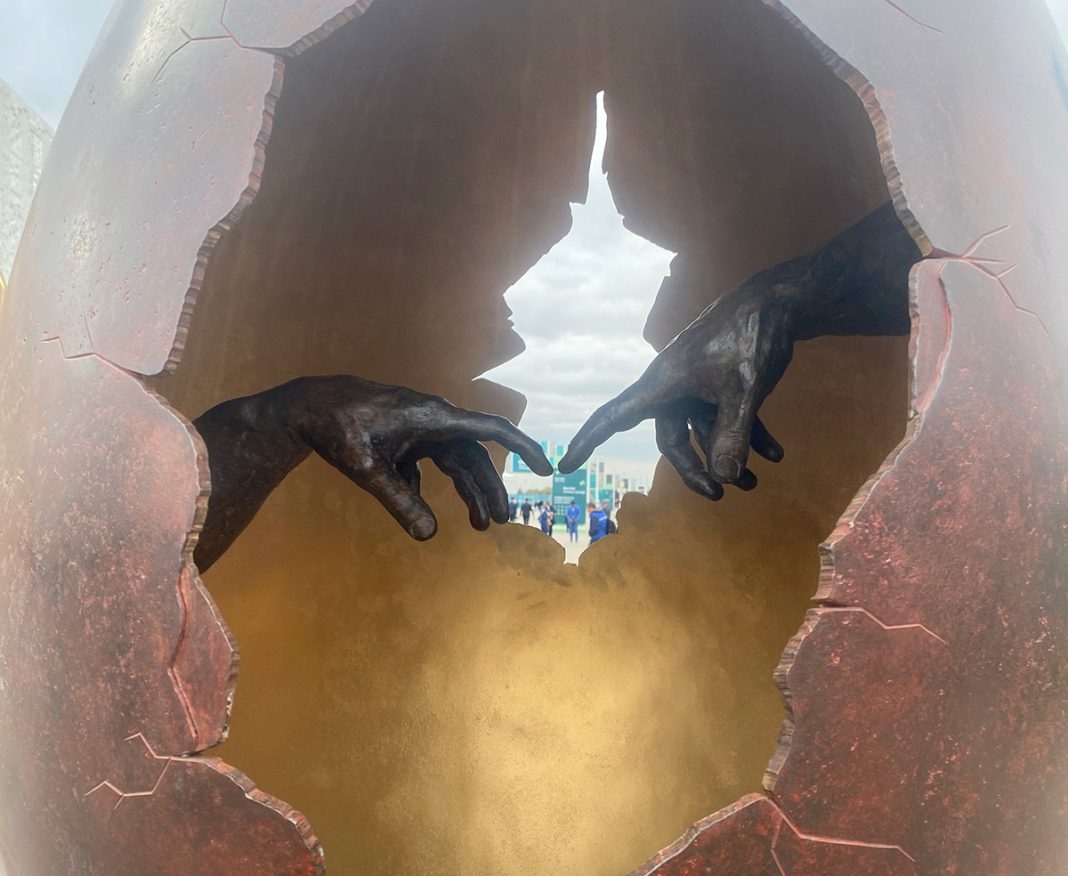If the entirety of African nations cut their global emissions by 100%, that would only account for 4% reduction of the world’s emissions.
That staggering fact is one I haven’t been able to shake after attending a panel discussion called “Just Climate Finance Requires a Regenerative Economy: a Black Liberation Analysis” featuring Analyah dos Santos.
That same day, in the negotiations between countries, I witnessed Australia block a discussion on financing the global south while they hosted Aboriginal Torres Strait Islander panelists at their public-facing pavilion to speak about the need for the very thing they were blocking.
Walking through the Green Zone, where business pavilions hosted their panels, I listened to two CEOs host a packed panel for energy companies on crisis communications plans when there are allegations of greenwashing targeted at their organization or leadership.
When I spoke in an interview with the UNFCCC youth communications representative, I spoke about “hope as a discipline.” in the face of the unyielding commitment from those in charge to protect their own interests and maintain capital power. Reading all this, it may seem like complete B.S. to provide the proposal that then local solutions are the solutions that is the answer.
I witnessed people taking real action, with tangible, important, specific impact grounded in community power across the globe. Just because our work is local, it doesn’t mean it’s global.
Another thought that hasn’t left my head: The United States is one of the largest emitters of greenhouse gas. When you think about that, state-level or local-level work actually creates tangible impacts globally.
When I was grabbing coffee between panels one afternoon at COP29, I bumped into an environmental law student from Alaska studying in Hawaii because they have no university in her own state. She cares so much about the place she comes from that she is willing to study law that she will likely need to re-learn through clerkship. I could see her dedication and vision for how she could make a difference in her state through thoughtful implementation of environmental law was inspiring.

The connections I made at COP fueled me to continue this work underlined my largest takeaway. We cannot rely on our leaders, but we still must advocate for, educate about, and take action for climate justice in our local, state, and national political arenas. Our actions can make a difference.
Zoe is a Climate Generation Window Into COP delegate for COP29. To learn more, we encourage you to meet the full delegation, support our delegates, and subscribe to the Window Into COP digest.

Zoe Redfern-Hall is the Senior Communications and Marketing Manager at Climate Generation and YEA! Alumni. She graduated from Clark University in 2021 with a degree in Political Science. Upon returning home to Minnesota, she became deeply involved with organizing against the Line 3 oil pipeline. Last year, more than 2,000 oil lobbyists were allowed to attend COP, impacting the negotiations, stories, and transparency of the conference. She is excited and honored to join the Climate Generation delegation of climate leaders, educators, and activists calling for real change and ambition for a just cultural, economic, and energy transition away from fossil fuels.


